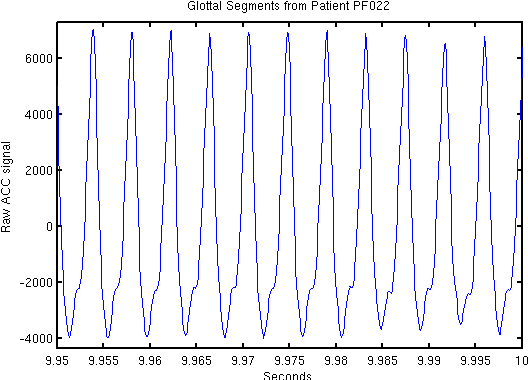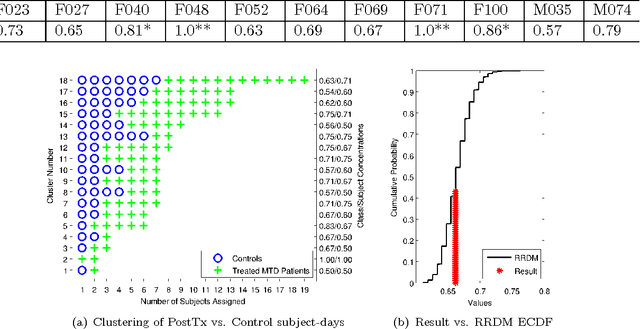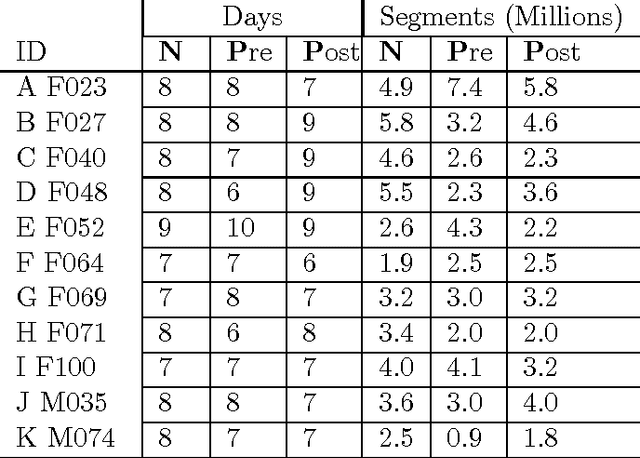Uncovering Voice Misuse Using Symbolic Mismatch
Paper and Code
Aug 08, 2016



Voice disorders affect an estimated 14 million working-aged Americans, and many more worldwide. We present the first large scale study of vocal misuse based on long-term ambulatory data collected by an accelerometer placed on the neck. We investigate an unsupervised data mining approach to uncovering latent information about voice misuse. We segment signals from over 253 days of data from 22 subjects into over a hundred million single glottal pulses (closures of the vocal folds), cluster segments into symbols, and use symbolic mismatch to uncover differences between patients and matched controls, and between patients pre- and post-treatment. Our results show significant behavioral differences between patients and controls, as well as between some pre- and post-treatment patients. Our proposed approach provides an objective basis for helping diagnose behavioral voice disorders, and is a first step towards a more data-driven understanding of the impact of voice therapy.
 Add to Chrome
Add to Chrome Add to Firefox
Add to Firefox Add to Edge
Add to Edge